Angie Thomas, author of The Hate U Give: 'Books play a huge part in resistance' | Books | The Guardian
Give: 'Books play a huge part in resistance'
The author’s young adult novel became a publishing sensation and an acclaimed film. Here, she answers questions from readers and famous fans on activism, social media and coping with rejection
by Tim Lewis
Sun 27 Jan 2019 23.00 AEDTLast modified on Sun 27 Jan 2019 23.19 AEDT
Shares
184
Comments37
In book publishing, it seems, they still do fairytales. Really not very long ago, Angie Thomas was a secretary to a bishop at a megachurch in Jackson, Mississippi. At nights – and during quiet periods in the day, she furtively admits – she worked on a young adult novel inspired by the Black Lives Matter movement. She had previously written a children’s book, but hadn’t had any interest from agents. “Yeah, I had more than 150 rejections for that one,” says Thomas matter-of-factly. Thomas’s break came when she cold-contacted a literary agent who was doing a Twitter Q&A. The story speeds up now: the novel became The Hate U Give (THUG), a YA sensation about a 16-year-old girl called Starr who witnesses her friend Khalil being shot by the police and turns to activism. THUG, published in early 2017, went straight into the bestseller chart in the US and stayed there for a year. It was a hit here too, and named overall winner of the 2018 Waterstones children’s book prize. It has now sold more than 2m copies globally. Last year, a film adaptation was released, which has been a critical and commercial success.
“Oh, it’s definitely surreal,” says the 31-year-old Thomas, on the phone from Jackson. “I still can’t believe it. It does feel like a dream I’m going to wake up from.” Her agent now is one of the 150-plus who turned down her first book. “So I hold that over his head,” she says, and giggles.
Now Thomas is back with a follow-up, On the Come Up. Like THUG, it is set in Garden Heights, a fictional inner-city neighbourhood that is deprived and predominantly black. But while her debut was more issue-led, On the Come Up is perhaps more personal to Thomas. The book’s protagonist, 16-year-old Bri, is obsessed with hip-hop – as Thomas herself is – and wants to make it as a rapper. When Bri’s mother loses her job (as a secretary at a church, as it happens), and the family is faced with running out of food and then eviction, Bri has to fast-track her ambitions.
“When I started the book, I thought about what was the most traumatic thing in my life,” says Thomas. “And fortunately for me, it wasn’t losing a friend like Starr did, but unfortunately it was that experience of my mom losing her job and my family going into that crisis mode.” Thomas was a teenager at the time, being home-schooled because she was experiencing mental health problems brought on by bullying. Her mother, who had been a teacher, oversaw Angie’s education and looked after her own sick mother. “Yeah, it was a challenge,” Thomas goes on. “We were living off the benefits my grandmother received and, even with that, there were days when we didn’t know if we’d have enough food. So this book was definitely from my own experience.”
Starr and Bri are both strong, independent characters, but they are also very different. “I compare Bri and Starr to Biggie and Tupac,” laughs Thomas. “Without the beef! Tupac was very community-orientated, and that’s how Starr is. But Bri, similar to Biggie, she’s about making it, she’s about seeing her dreams come to life. She’s about trying to save her family, and there’s nothing wrong with that. So that’s where they’re different, but they’re similar in the fact that they are both powerful young women who know they have voices, and they both understand how they can use those voices to affect an entire generation.”
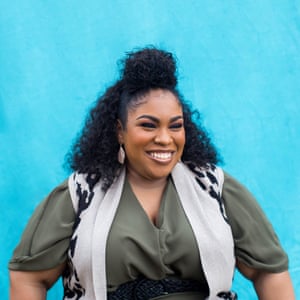
Author Angie Thomas.
Photograph: Imani Khayyam for the Observer
--------
Thomas, meanwhile, has become a role model in her own right. The campaign We Need Diverse Books was started after a US study showed that, of the 3,200 children’s books published in 2013, only 93 featured black people as the main character. The problem was further highlighted when American schoolgirl Marley Dias attempted to find 1,000 books where the protagonist was a black girl and failed. “When a 12-year-old kid calls you out, you need to change,” says Thomas. “And I can see it slowly changing. There’s been a shift within the past few months where more than half of the books on the New York Times bestseller list for young adults were by authors of colour featuring main characters of colour, and that’s huge.”
Thomas certainly knows what it’s like to look at the publishing industry and find its walls impenetrable. “Rejection is always hard, and a lot of rejection is really hard,” she says. “But what helped me was the community of unpublished authors out there on the internet, so you can connect and you can weep and mourn together. And I always had to remind myself that it only takes one yes to change everything. That’s what I tell aspiring writers now. I know writers who had 500 rejections, and more than that – but you just have to keep going and hope that you do get that one yes.”
------
Questions from famous fans
 Photograph: Massimiliano Donati/Awakening/Getty Images
Photograph: Massimiliano Donati/Awakening/Getty ImagesFrank Cottrell-Boyce
Screenwriter and novelist
A story for you – I took THUG with me on a long journey. Was saving the last chapter as a treat. The woman opposite me – as old as me, no way a young adult! – kept eyeing my copy, so I offered it to her while I got on with my work. When we arrived, she looked pleadingly at me. I said: “OK, you can keep it. I’ll get another copy.” She looked so relieved. She literally could not bring herself to put it down. I think one reason it has appealed to so many people is that despite its darkness, it’s a very positive book, full of understanding. We don’t do religion in the UK, but I wondered if your faith had played a part in that?
Angie Thomas
First of all, that is a beautiful story. It always amazes me when I hear not just of people who connected with the book but people who are willing to share their own copy, because as a reader, I think I’d be too selfish. So thank you for being better than me! But yes, my faith is a huge part of who I am in every single thing that I do. It literally defines me. I tell people: “I love Jesus, but I cuss; thankfully he still loves me.” And often, as a Christian, I find myself around people who are like, “Well, why would you want to address something like racism?” But the fact is, especially here in America, Sunday is the most segregated day of the week. And I think it’s important for someone like me to speak up on this and to take a stand and hopefully to shed some light on the darkness.
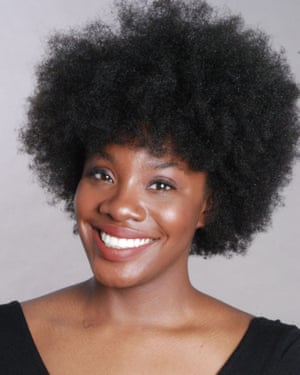 Photograph: Courtesy: Yomi Adegoke
Photograph: Courtesy: Yomi AdegokeYomi Adegoke
Co-author of Slay in Your Lane: The Black Girl Bible
On the Come Up and THUG take place in the same fictional neighbourhood of Garden Heights. Did you always intend on telling new stories from the same universe, and is it something you will do again?
I knew going in that I wanted to do another story in Garden Heights, at least one more, because it was important for me to show that even in a neighbourhood like that, you could have two young ladies whose lives are completely different, whose personalities are completely different. Black girls are already stereotyped so much and put into boxes so much, I never wanted anyone to assume that every single young lady in Garden Heights is like Starr or even like [her half-sister] Kenya. So now we have someone like Bri who is different from both of them. She’s her own person. She has her own personality. She has her own struggle.
Someone recently asked me, did I think that Starr and Bri would get along? I think they would have their little clashes every now and then, but they would get along because both of them care deeply about others, and about their families and their community, and they can find common ground on that. It’s just they have different approaches to address the things that affect them.
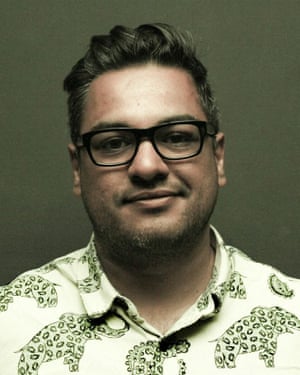 Photograph: Aria Alagha
Photograph: Aria AlaghaNikesh Shukla
Author of most recently, The One Who Wrote Destiny, and co-editor of forthcoming The Good Immigrant USA
Give us your top five rappers and why (I think we can assume Tupac is No 1)…
I should have known he’d ask that question! But Lauryn Hill is one for sure. We don’t give Lauryn Hill enough props or respect, not just as a woman in hip-hop but just as a talented individual in hip-hop. She’s one of the best rappers of all time, and not enough people say that. Biggie for sure. As a Tupac fan, I’m sure people will be like, “How can you say that?” But you have to give respect where it’s due: Biggie had the most amazing use of wordplay and his flow was iconic. Then I have to say Kendrick Lamar. He’s new and everything, but I have to throw him in because he continues to be himself in an industry that often promotes being someone you’re not. And my fifth one, it’s either Jay-Z or André 3000, but I’m going to go with André 3000. As a southerner, Outkast was the group for me, and it was always amazing to see some rappers from the south who not only rapped well but they brought a lot of respect to us as a region when it comes to hip-hop. Usually with hip-hop it was always east coast versus west coast and the south was forgotten, but Outkast, they gave us a voice.
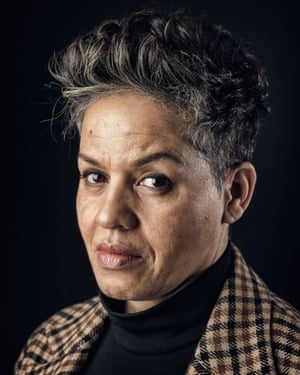 Photograph: Antonio Olmos for the Observer
Photograph: Antonio Olmos for the ObserverKit de Waal
Author of My Name Is Leon and the editor of forthcoming Common People: An Anthology of Working Class Writers
Where do you see literature, particularly fiction, fitting in to acts of resistance?
If nothing else, fiction has empowered a lot of people in the act of resistance. The Hate U Give, I know, has birthed several young activists and I’m so happy with that, I’m so proud these young people have decided to speak up and speak out on things that concern them. There was one young lady in Texas, it started out with her deciding she was going to speak up for the book when it was challenged by the school district. And that led to her becoming an activist in her own right in other areas. So I think books can empower.
Rudine Sims Bishop [the author and educator] says that books are either mirrors, windows or sliding-glass doors, and that’s important in the act of resistance. You need that mirror to see yourself, to know what you can be and know what you are. And then you need that window to see into someone else’s life so you can understand what’s happening around you in the world that you may not notice at first glance. And you need the sliding-glass door so that you can step into someone else’s life and walk in with some empathy and use that empathy to make yourself heard. So yeah, I think books play a huge role in resistance. They play a huge role in opening people’s eyes and they’re a form of activism in their own right, in the fact that they do empower people and show others the lives of people who may not be like themselves.
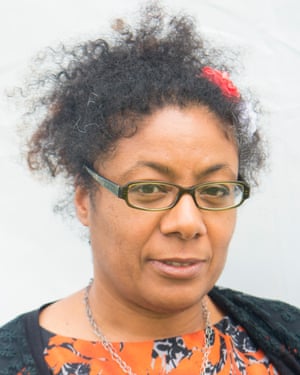 Photograph: Alamy
Photograph: AlamyPatrice Lawrence
Advertisement
Award-winning British YA author of Orangeboy
I have always known that there are black Americans, because US popular culture – from TV comedies and detective series to pop and hip-hop – have a prominent place in UK culture. Unfortunately, black British people rarely feature in the UK’s cultural exports to the US. How do black Americans perceive their UK counterparts, and how can us UK lot boost our profile in the States?
First of all, I love Patrice. And it’s interesting, because when I first came to the UK for my book tour in 2017, I told some of the kids back here in Mississippi that I was going, and they were like, “Wait, are there black people over there?” And I’m like, “Gosh! Black people are everywhere!” But the thing is, so often we don’t know, we’re not told about black people beyond America and Africa. And Americans in general, we tend to be very self-absorbed and don’t hear about other communities beyond our own. So it’s definitely something that we fail to do.
And, as for black British people to be more visible here in the States, I wish I had the answer. I would say one big thing I hope would happen though is that black British people would become more visible there in the UK. Cos I was talking to some black kids while I was there and they told me that they studied black history of America more than they’ve studied black history of the UK. And there is black history in the UK. So I think that should be changed, if nothing else.
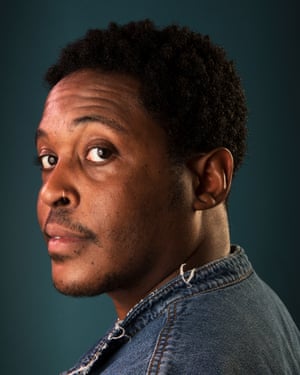 Photograph: Richard Saker for the Observer
Photograph: Richard Saker for the ObserverDanez Smith
Poet whose most recent collection is Don’t Call Us Dead: Poems
Is there such a thing as loving your characters for you? If so, how does a love for your characters, or the people they represent, inform how you put them through difficult situations?
I feel like the way I answer that is probably either going to make me seem cruel or heartless. I love Khalil in The Hate U Give and it was heartbreaking for me to do what I do to him. So when he lost his life the way that he did, it breaks my heart just as much as it breaks my readers’ hearts. But the intention was that, even though it breaks their heart, maybe then they start thinking about the real-life Khalils, with that same love and empathy and sympathy. So it’s definitely intentional for me to love my characters, even when I put them through stuff.
 Photograph: Alamy
Photograph: AlamyJason Reynolds
YA author whose new book, Ghost, is published 7 February
Advertisement
Angie, one of the things writers, specifically writers of colour, often grapple with is the vaporous idea of authenticity, especially when it comes to voice. So, how do you balance writing a voice that feels culturally true without slipping into the clownishly trite?
For me, it’s always about balance: being authentic without being over the top. Like slang: do I use slang every now and then? Absolutely. Will I overwhelm my reader with it and overwhelm my dialogue with it? No, absolutely not, because slang terms become outdated quickly, and also that’s not how these kids speak. They are not overusing it. So for me, an authentic voice is all about listening to the people around me, listening to the world and listening to language patterns and seeing how people actually talk. And when I write my dialogue I usually say it out loud so I can see if it sounds OK. I find a lot of historic novels that portray the way black people spoke back in the day, they did it over-the-top and they had us sounding very ignorant. And why? Because they had no respect for us as people. So as a writer, my goal is to always have respect for whoever it is that I’m writing about or writing for.
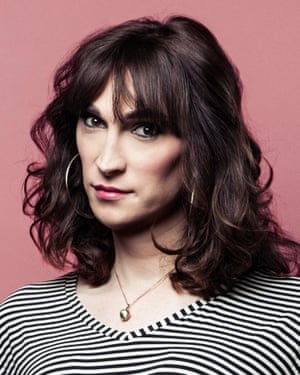 Photograph: Alex Lake for the Guardian
Photograph: Alex Lake for the GuardianJuno Dawson
Author of YA novel Clean
You spent a lot of time on Twitter fielding questions about the casting of the film adaptation of The Hate U Give. Is social media, on balance, a blessing or a curse?
Ha! A little of both. It’s a blessing because I get to connect with readers and I get to hear stories that I probably didn’t hear before. I get to see pictures of kids in the hallways taken by their teachers and they’re reading my book on their way to class, or I get to hear from parents who say, “This is the first book my kid has read in forever – thank you.” Or I get to hear from the kids themselves who say, “Oh my God, I love this book.” But then on the flipside you get the demands that sometimes readers make: “Why did you let them do this?” Or “Don’t let them do this.” I had to get to the point of recognising that I can’t please everyone and I’m OK with that. My job is to simply write the book, tell the stories. The rest is beyond my control.
Questions from readers
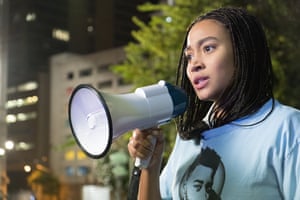
FacebookTwitterPinterest Amandla Stenberg as Starr in the film adaptation of The Hate U Give. Photograph: Erika Doss
Did you have a eureka moment where you knew definitively that writing was what you wanted to do? What is your writing process?
Alomohbitters
My eureka moment came while I was writing soap-opera fan fiction! There was this soap opera here in the States called Passions and it was one of the most vacuous to ever exist; they had a witch on there and all these things. But the characters on that show were so rich and there was so much to be explored with them that, as a teenager, I decided to write fan fiction for them and put it up online. So my eureka moment came when I had readers say: “Wow, you’re really good at this” or: “Girl, I rushed home when I saw that you had put up another chapter, I had to come home and read it.” That really pushed me and I was like: “Wow, well, maybe this is something I can do with my own characters. Maybe I can create these worlds myself, that belong to me.”
Advertisement
As for my process, I always try at least to write an outline chart. I don’t always stick with the chart 100%, but it’s at least a road map and if I make a couple of detours here and there that’s OK. I took this from JK Rowling, actually. She did one for the fifth Harry Potter book and put it online: at the top of the chart, she had every character or subplot listed and then on the side she would have the different chapter numbers and that’s how she could keep up with what was happening in every single chapter. So that’s what I do for my books now. I do a chart. If it works for her, and she’s sold all those books, maybe it can work for me!
NWA or Wu-Tang?
Paul Taylor, Dorset
Ohhhh, that’s hard for me to answer that. Cos on the one hand, with NWA, they changed hip-hop as you know it – you’ve got an entire genre of hip-hop and, really, a coast in hip‑hop culture because of NWA. They helped bring west coast hip-hop to popularity. They gave us gangsta rap, but then on the other hand… they gave us gangsta rap. They gave us music that at times demeaned women, they gave us music that at times was destructive for the community when people took it the wrong way or used it a certain way. So it’s hard for me to say NWA. I do appreciate anything that they did, but I have to go with Wu-Tang.
Do you see yourself as a political writer or a writer who happens to be political? How do you think Trump’s presidency is changing America and what mark do you think it will leave, especially on literature, when he goes?
Gaverne Bennett, London
These days, it’s hard to say because politics is such a huge part of my life anyway. But I would say that I’m a writer who is concerned about politics. I would never just say that I only write about social justice issues, because I won’t. It’s funny, because I tell people: “Mississippi is known for two things: writing and racism.” And I happen to be a writer who writes about racism.
Advertisement
For the second part, if nothing else right now, Trump has stained America. He has taken us out of a leadership position in the world. Nobody will listen to us now as a leader or as a beacon of hope for anything because of him and because of his actions and because of the decisions he makes. But I will say, I’m more hopeful now than I was before, because I’m seeing more people who are concerned about politics. We’re going to come away from this knowing that we have the ability to change things and that ultimately our government answers to us. So I hope that by the end, when he’s out of office, that the world will know that we Americans, the majority of us, don’t stand for what he stands for. So definitely, please don’t give up on us.
Learning to read and write is “freedom” only if one can find a publisher with contacts for publicity. Eudora Welty, whose writings I adore, got hers through the New Deal programmes. How did you find yours?
Shrimpandgrits
Wow, that’s awesome that he or she loves Eudora. My college that I attended is actually across the street from her house, so I would see that every single day. But, for me, my publishing journey actually started with Twitter, of all things. When I was writing The Hate U Give, I was honestly not sure if it was something that would even be published, because if you said Black Lives Matter to 30 different people you may get 30 different responses. But also because publishing, young-adult publishing was so white, I wasn’t used to seeing books about black girls and I definitely wasn’t seeing books about black girls in situations like this.
So a literary agency held a question-and-answer session on Twitter and I went on and I asked a question. I’m paraphrasing but basically I asked: “Is a book that addresses an issue like this even something that can be published?” And a literary agent by the name of Brooks Sherman responded: “I don’t think any topic is off limits for young adult readership. It’s just a matter of how you address it.” And I was like: “Well, I hope I address it well.” And he said: “I’d actually like to read it if that’s OK.” So I sent it to him and a few months later he signed me as a client. A few months after that, he submitted it to publishers and 13 US publishers fought for the rights to the book. So Twitter is good for something; if nothing else, it found me an agent.
----
Do you think the world should focus so much on the cultural problems of the US, when really it’s just 3% of the population?
GreenlandGyrfalcon
No, I don’t think that they should. That’s a great point. We should not be the centre of attention all the time. I see why [we are], because we are such a powerhouse, but we need to be aware of other countries and what’s happening there. It doesn’t make sense that you guys have to be subjected to our news maybe sometimes more than your own. So I am so sorry on behalf of America. I am so sorry that our stuff takes up so much air space. I am so sorry that we take up so many headlines.
What advice would you give to your younger self?
Molly Reed, aged 15, Barnes, London
I would tell my younger self to be yourself no matter where you are. In a few years, you’re going to be entering university and you are going to ask questions if you’re being your authentic self because you’re often made to feel you’re either too much or not enough. But I promise you, you are enough. You’re enough for everywhere you go, for whatever you do. Always know that. And then I would tell my younger self, my 15-year-old self specifically, if you want to write, write for yourself. Whatever it is that you want to do, do it for yourself. Don’t do it for the accolades, do it because it’s something you love. And then I would tell my 15-year-old self: it’s going to be OK. There are days where you wonder if that’s true, how you’re going to survive all of this stuff. You wonder, will you make it? You just have to hang in there, you have to keep going and if you keep going, I promise you there will be light in the darkness. You can do it!
Aww, you made me tear up!
• On the Come Up (Walker Books, £7.99) by Angie Thomas is out 7 February. To order a copy for £7.03 go to guardianbookshop.com or call 0330 333 6846. Free UK p&p over £15, online orders only. Phone orders min p&p of £1.99
• Angie Thomas: On the Come Up is at the Southbank Centre, London, Tuesday 12 March, 7pm. Tickets (£15) from southbankcentre.co.uk
Topics
You ask the questions
Fiction
Black Lives Matter movement
Children and teenagers
The Hate U Give
features
Share on LinkedIn
Share on Pinterest
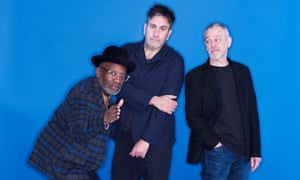
The Specials: ‘Respect people. Be kind to people. What else have we got?’
3 Feb 2019200The Specials: ‘Respect people. Be kind to people. What else have we got?’
4 out of 5 stars.
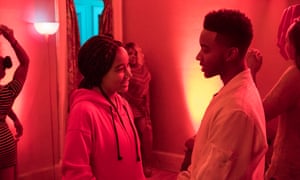
The Hate U Give review – articulate drama about America’s racial strife4 out of 5 stars.
28 Oct 201818The Hate U Give review – articulate drama about America’s racial strife
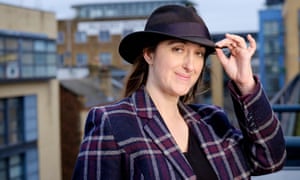
Book clinic: which books might wean my teenage daughter off screens?
13 Jan 201961Book clinic: which books might wean my teenage daughter off screens?
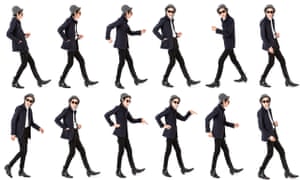
John Cooper Clarke: 'My trousers? River Island or M&S. The skinniest they do'
28 Oct 2018John Cooper Clarke: 'My trousers? River Island or M&S. The skinniest they do'
'Silly question!' Mike Leigh interviewed by our readers and famous fans
21 Oct 2018'Silly question!' Mike Leigh interviewed by our readers and famous fans
The Hate U Give's Amandla Stenberg on bringing Black Lives Matter to the box office
19 Oct 2018The Hate U Give's Amandla Stenberg on bringing Black Lives Matter to the box office
Arundhati Roy: ‘The point of the writer is to be unpopular’
17 Jun 2018306Arundhati Roy: ‘The point of the writer is to be unpopular’
Massacre at the movies: why must cinema torture the young?
12 Oct 2018218Massacre at the movies: why must cinema torture the young?
You ask the questions
An occasional series in which we invite public figures, famous fans and readers to send us their questions which we then put to a cultural figure as part of an interview
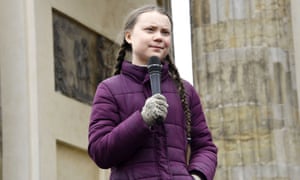
Send us your questions for climate activist Greta Thunberg
24 May 2019Send us your questions for climate activist Greta Thunberg
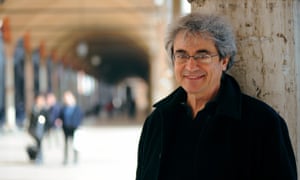
Carlo Rovelli: ‘Time travel is just what we do every day…’
31 Mar 2019Carlo Rovelli: ‘Time travel is just what we do every day…’

The Specials: ‘Respect people. Be kind to people. What else have we got?’
3 Feb 2019The Specials: ‘Respect people. Be kind to people. What else have we got?’

John Cooper Clarke: 'My trousers? River Island or M&S. The skinniest they do'
28 Oct 2018John Cooper Clarke: 'My trousers? River Island or M&S. The skinniest they do'
comments (37)
Sign in or create your Guardian account to join the discussion.
Order by Oldest
Threads Collapsed
Laurence Bury
27 Jan 2019 22:48
1213
Such accounts are interesting but the politics that comes to around them always seem to be separatist. Is this the direction that multiculturalism has automatically to move in which seems contrary to the civil rights idealism of the 1960s?
It would appear to be postmodern radicalism based on the continuous recreation of communitarian identity as an insurgent political force. We will see how the formalised politics pan out with the politics of the Democrats in the 2020 election since the US is the home and origin of this whole philosophy.
Share
Facebook Twitter
Report
justsoicanreply Laurence Bury
28 Jan 2019 0:54
1011
Most people just want to get on (I hope) but the ‘separatist’ response of black people in the USA is mainly self-preservation, as is the collection of black and particularly people from India & Pakistan in the UK in certain areas of towns and cities.
Creating an identity for themselves is crucial for people under attack over centuries, especially when their ‘identity’ has been previously created for them. That fight continues, with all the negative tropes and cliches that are trotted out by public voices having to be confronted.
Wherever you look across the world the most strident identities are those claimed by people with power who seek to define others against their image. Power might depend being a majority ethnicity, or it might depend on wealth or military might. Claiming your identity (and in the States that can start with claiming a name, one that isn’t toxic with the history of slavery) is a means of claiming agency over your own life.
Don’t knock it.
Share
Facebook Twitter
Report
Basilot justsoicanreply
28 Jan 2019 0:57
45
Wherever you look across the world the most strident identities are those claimed by people with power who seek to define others against their image. Power might depend being a majority ethnicity...
... which neatly allows disparagement of the white working class and suits the actually powerful down to the ground.
Share
Facebook Twitter
Report
Show 22 more replies
antjedc
27 Jan 2019 23:06
1112
I found it a good read, and I am by no means a young adult. As she says, a window into somebody else's world with well developed characters. Thank you.
-------------------
No comments:
Post a Comment